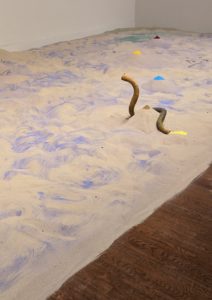News
Knowing our journeys and our resting places
 Psalm 139 reminds us that our journey through life is never alone. We travel with one another and we travel with God, who knows what we are all about -maybe better than we know ourselves. God also knows where we have been and where we are going. To know all is to love all. One wonders? Tantrum or nap, even when we stop and refuse to budge another inch like some petulant child, God gets it! Where are you with all of this? Do you feel God is journeying with you?
Psalm 139 reminds us that our journey through life is never alone. We travel with one another and we travel with God, who knows what we are all about -maybe better than we know ourselves. God also knows where we have been and where we are going. To know all is to love all. One wonders? Tantrum or nap, even when we stop and refuse to budge another inch like some petulant child, God gets it! Where are you with all of this? Do you feel God is journeying with you?
Technologically, modern humans have been able to create an electronic footprint, so we are close to replicating an imaginary recording of all we do as human beings. Is the robot Alexa recording all we are saying in the privacy of our own homes? Our phones, computers and online life are never private, and we can be tracked in so many ways that were unimaginable a decade ago. Ancient art and beliefs have tried to record both the permanence of our actions and the transience of life. I saw a recent exhibit in the Philadelphia Museum of Art (pictured) where the influences of eastern religious sand art (all that seems permanent will eventually blow away like colored sands) shaped a contemporary installation that filled a large room. Like golden sand dunes sprinkled with blue dust, the tracing of life’s experiences seems fleeting and random, yet they are there.
The shifting sands of 2020 and the winds of a global pandemic have changed some of the familiar topography of our lives. Yet, the psalmist reminds us, God shares that experience with us and that may be disturbing or comforting. Christians believe our lives have a moral and eternal dimension. What we do and say here affects the universe, the planet, and the community in which “we live and move and have our being”. Much of the alienation and disconnect from our true selves is caused when we cannot see this larger significance for our lives. Most of us may feel randomly irrelevant and terribly alone. No-one cares. We are floating in a sea of ambiguity and purposelessness. Life flows through our fingers like manifold hour glasses and no-one seems to be in control of anything. Ambition and consumerism provide temporary distraction but never fills the dusty void.
Christians look to the life of Jesus as an example of how to grasp life’s uncertainties and even life’s cruelties, so they do not fully define who we are or what we may become. The risen Christ is still damaged by what shaped him and what happened to him. New and resurrected life does not negate our suffering or our wounds. They may indeed become defining markers of a kind of victory over the sense of being irrelevant or unaware of life happening to us.
Crucifixion takes many forms and many of us feel pinned to some form of cross or other, without all the theological props to keep our heads above the fray. Jesus taught that this place is also the place where we may discover the holy and divine solidarity.
Our parish annual meeting is almost upon us. This congregation will celebrate our 166th time of reflecting together on how God has been with us during the sandstorm of 2020. Standing at the St. Paul’s altar dressed in vestments, latex gloves, and a mask, I never imagined it would all end like this! As retirement looms and 45 years of sacramental ministry, this was certainly not something I signed up for or expected. None of us did. I feel like a surgeon or a midwife protecting both you and me from the winds of illness and destruction. The invisible threat of extinction is ever present but now more than ever. We see it differently, but where is God in all of this? What needs to be surgically removed or sedated in us? What new life is about to kick out from the advent womb of transition?
Let us be simply together as the followers of the resurrected and wounded one, one more time. Light a candle and bless the darkness. Cry out and dare to touch, hug, and hope again. Thank you for your company on this long journey. What has it been like for you, I wonder?
The Rev. Canon Albert Ogle
